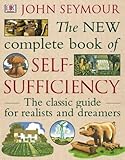Today we harvested a few more vegetables from the garden.
We harvested potatoes (which were grown under only 2 hours of sunlight!), plenty of celery, plenty of cucumbers (in half-shade), and a few tomatoes (which are now slowing due to the lack of sunlight). The tomatoes in shade grow, but the fruits stay green and grow slowly. However, with just 3 hours sunlight, the plants gave a nice crop.
Our pumpkin plant is growing very long, it has several female flowers, let's hope that we can harvest in a couple of months a dozen of nice
muskat de provence pumpkins!
I cut the zucchini. The plants were not cropping anymore, due to the lack of sunlight. I guess they are not adequate to shade gardens, and occupy much space. It's much better to grow the prolific cucumbers!! Each plant gave about 5-10 fruits.
We also have some beans growing and cropping (of exotic varieties).
Our jerusalem artichokes, chinese artichokes, yacon, skirret, taro, scorzonera, and tiger nuts, are still growing, and hopefully producing a nice crop of roots under. The yacon plant is huge, with giant leaves and nearly 2 meters high. I had to protect it from the wind.
We also have one plant of celeriac and a few new kohl-rabi. And our good king henry is growing fantastically well, with plenty of its spinach-like leaves for us to cook. The swiss-chard is another crop growing very well even under the shade of a tree.
The nice thing is, with so much mulching and shade, there is no need to water the garden for several days in a row.



